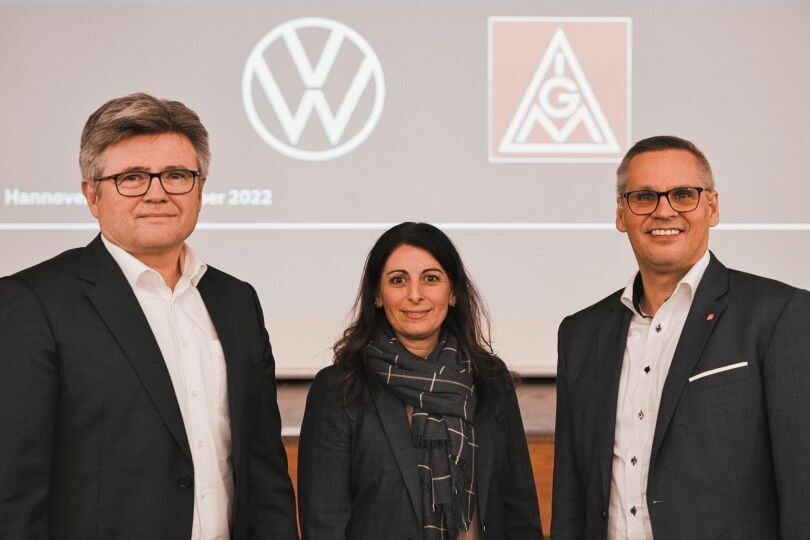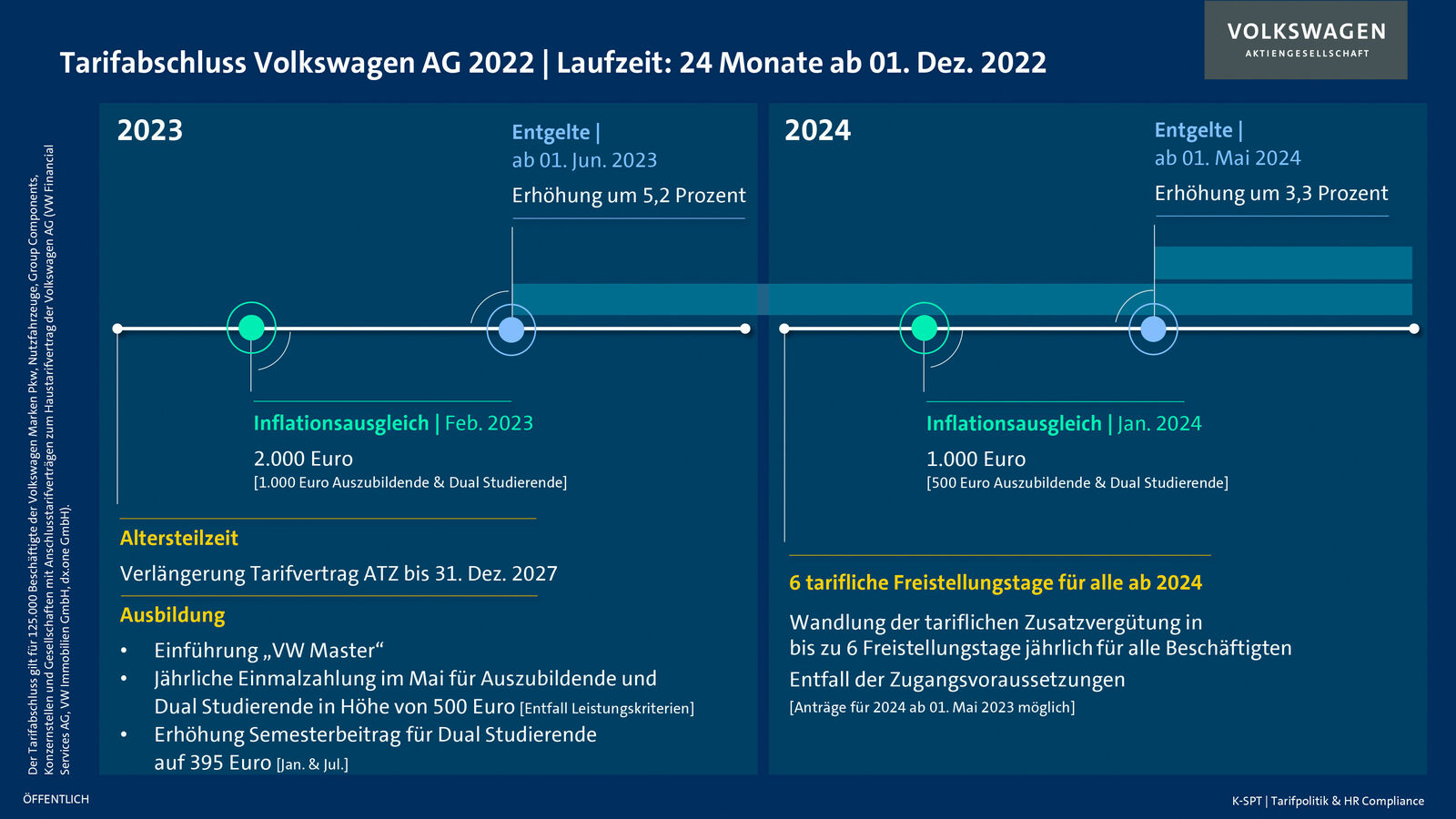A two-stage pay increase of 5.2 percent as of June 2023 and 3.3 percent as of May 2024 has been agreed. In addition, Volkswagen will pay its employees a tax- and social security-free inflation compensation premium of 2,000 euros as of February 2023 and 1,000 euros as of January 2024. Trainees and dual students will each receive half of that amount.
Chief negotiator Arne Meiswinkel commented: “We have achieved long-term planning certainty and stability for Volkswagen for 24 months. This agreement takes account of the exceptionally challenging and persistently volatile macroeconomic environment. The strong signal given by an agreement being reached before the duty to refrain from industrial action expired also testifies to our responsibility towards our workforce and the company.”
“The salary agreement should not hide the fact that we must continue to keep our costs strictly under control,” Meiswinkel added. “This is a basic requirement if we are to continue our transformation at the pace needed to safeguard our competitiveness and jobs.”
According to Meiswinkel, an important contribution to Volkswagen’s transformation will be made by the introduction of a new forward-looking scholarship program with which the company is addressing students with a bachelor’s degree for the first time: “In offering the Volkswagen Master’s program, we are tailoring our training opportunities even more closely to our future needs and will attract highly qualified young talent for our transformation, preferably in the future fields of digitalization, software and battery development.”
Scholarship holders will have the opportunity to get hands-on experience at the company and start a career there directly after completing their Master’s degree.
Volkswagen will continue to offer the 1,400 annual training places specified in the collective bargaining agreement.
From 2023, Volkswagen will increase the standard fee charged to dual students from 350 euros to 395 euros per semester. According to the final collective agreement, future trainees and dual students will receive an annual lump sum of 500 euros instead of a one-off performance-related payment.
The collective agreement for partial retirement has been extended for five years until December 31, 2027. For Volkswagen, the instrument will remain an important tool for advancing its transformation into a sustainable, software-centric mobility company and managing its future personnel requirements. Meiswinkel explained: “Targeted implementation of partial retirement gives us the necessary flexibility to adjust employment along the demographic curve, allowing employees with a particularly heavy burden to retire early, and at the same time retain the future qualifications needed in the company.”
In addition, Volkswagen AG and IG Metall agreed to allow all employees to convert their collectively agreed overtime pay into paid leave of up to six working days per year. Previously, this provision applied only to employees with particularly stressful life and work situations, such as care-giving, shift work or child care. From 2024, all employees will be able to choose between a cash payment and taking time off.
Volkswagen AG’s collective bargaining agreement applies to around 125,000 workers at the plants in Wolfsburg, Braunschweig, Hanover, Salzgitter, Emden and Kassel and also covers employees at Volkswagen Financial Services AG, Volkswagen Immobilien GmbH and dx.one GmbH.









